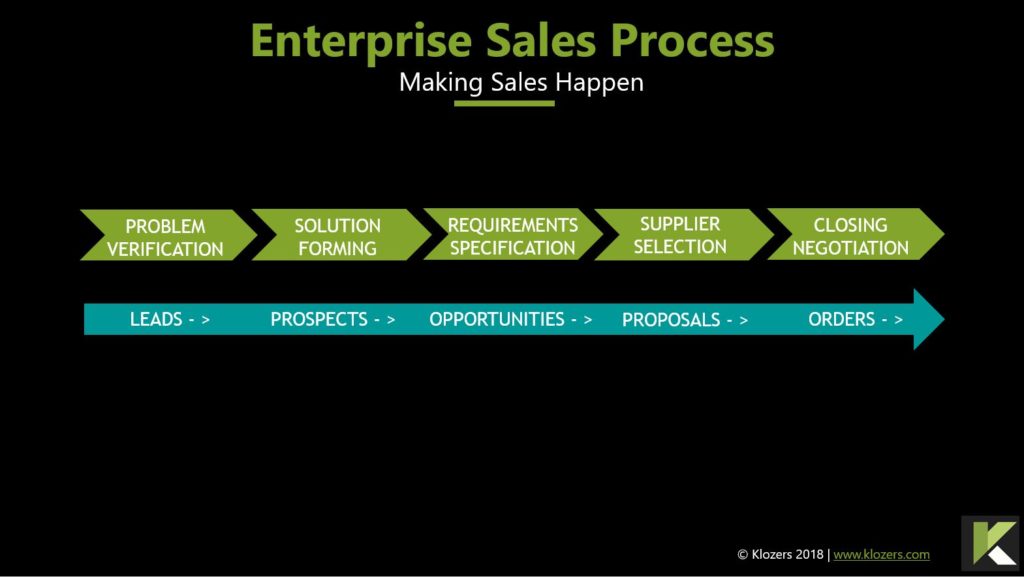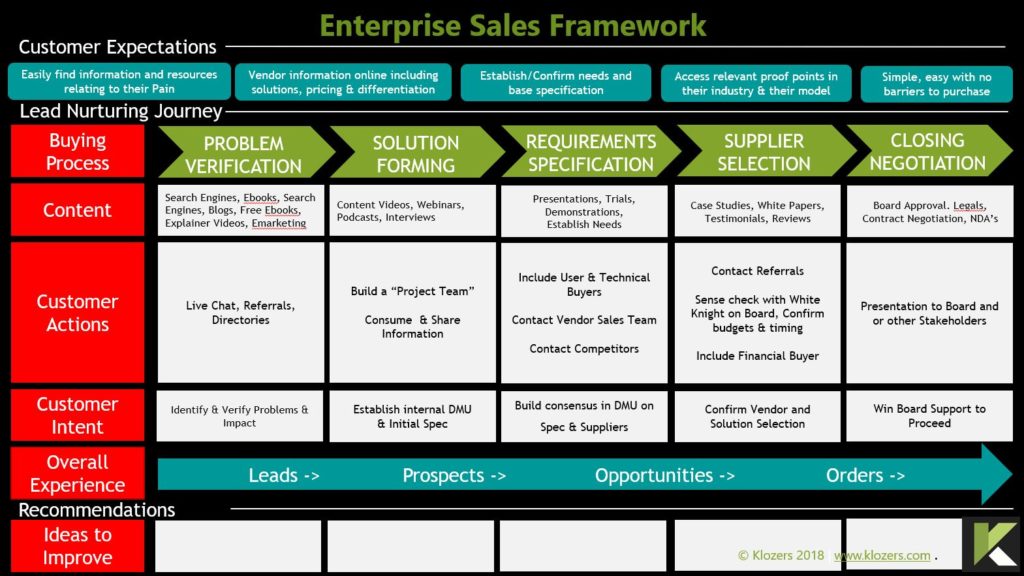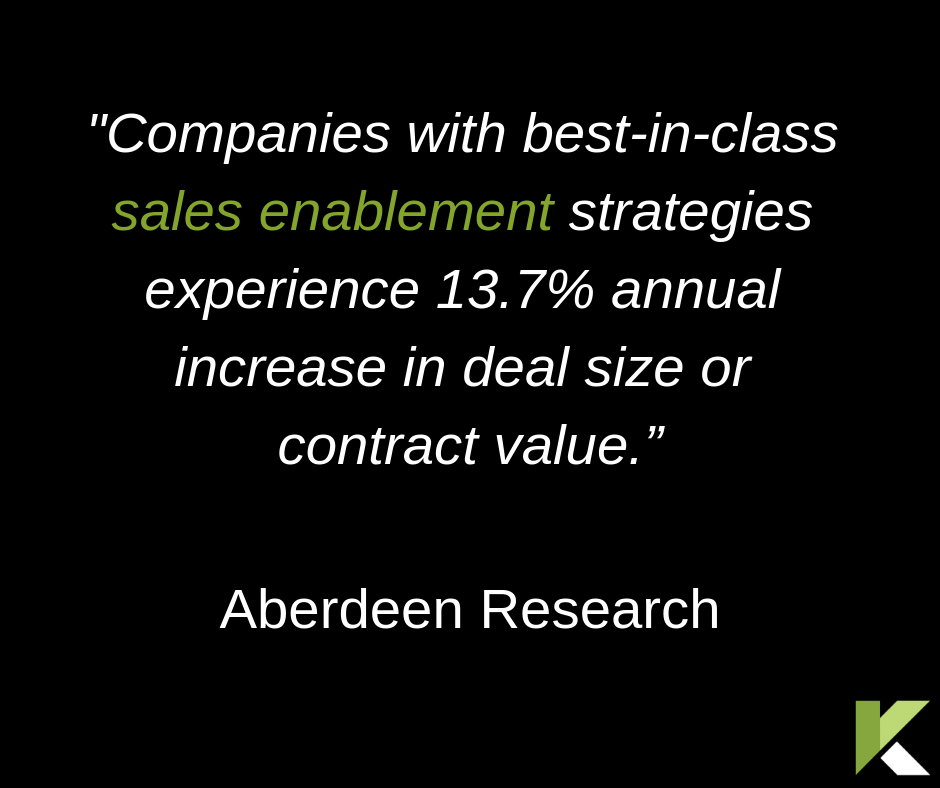There’s a new way to deliver sales growth…
Don’t buy Sales Training until you’ve watched this video…
Enterprise Sales are sales to large organisations that normally have long sales cycles, (minimum 6 months) and involve a complex sales process which includes multiple buyers, (usually 5-9 people) from different divisions within the buying organisation. They are high-value contracts that would normally go through a formal ITT (Invitation to Tender) and RFP (Request for Proposal) buying
Join us LIVE at one of our Enterprise Sales Bootcamps in London, Amsterdam, Frankfurt, Boston and Las Vegas.

Don’t buy Sales Training until you’ve watched this video…
Whilst there is no definitive guide to what is an Enterprise Organisation they usually share the following traits:
1. They operate Internationally and have offices at a National Level in the majority of countries.
2. They have multiple divisions some of which may be diversified from the core business of the organisation.
3. They have thousands of employees and use either a flat, horizontal, divisional or matrix management structure.
4. They invest heavily in Research and Development to develop both new and existing products.
5. They are most likely to be technology, telecoms, software and pharmaceutical companies, however, we class any company listed on any of the major stock exchanges as an enterprise organisation.
Enterprise selling is selling to a large organisation that includes multiple decision makers, each of which may have competing priorities. Enterprise Sales are also referred to as Complex Sales and in most cases the additional number of decision makers elongates the sales cycle.
According to research, the average number of decision-makers is 8 and the typical enterprise sales cycle is 9 months. Each of these buyers has their own needs, wants and desires so any form of generic value proposition is unlikely to resonate with any of them.
Due to the number of buyers involved, there are invariably many times that buyers have conflicting internal priorities that they have to try and balance throughout the process. These competing priorities can create conflict over “political” or “power” grabs, which then makes navigating through the sale even more difficult.
In addition, what makes the sale complex is research from Gartner shows that up to 80% of the buying groups revisit each stage of their purchasing process at least once.

We believe the best sales model that sales teams can use to sell to Enterprise Organisations is to sell to them, in the way that they want to buy. This is because they are usually either unwilling or unable to change their buying process to one that will match your own selling process.
So, rather than try to force them down a path they won’t take and remain out of sync with the buying team, it makes more sense to align your sales process with their buying process.

In our Sales Training programme we use a simple 5 step sales framework that is aligned with the typical Enterprise Buying Process.
Unfortunately, although this is represented as a linear sales process, in reality, the buying groups are moving back and forth checking, verifying and rechecking information, most of which is done digitally, not with the Sales Professionals.
The buying groups are typically made up of people from different departments who have been brought together internally to solve a problem. This is very different than selling to smaller companies where often the Managing Director is the sole decision maker.
That’s not to say that the Sales professionals role is marginal, rather their main role now is to act as a guide, using their knowledge and sales skills to provide the right information to the buyers at each stage of the buying process.
The most successful Salespeople as they guide the buyers through the process will be building E.A.T (Expertise, Authority & Trust) with the buyers and shaping the specification requirements to match the customers’ needs with their own offering.

In most cases our Enterprise Sales Training is bespoke to our clients’ needs, however, the most common topics we cover are:
The structured process to maximise revenue from a given sales territory whilst maintaining or reducing costs.
The methodology of selling business solutions that solve business problems vs selling technology that has little or no connections to the prospects business pains.
An objective process of measuring the likely hood of winning a deal before committing time money and resources.
Maximising and maintaining the performance of the sales team.
The successful negotiation of sales and contracts
The sale of Software as a Service products into Enterprise organisations
How to control & manage complex sales cycles
Creation of Sales Messaging & Sales Campaigns
Re-energise and invigorate the teams sales performance in the next quarter
Kickstart a sales campaign to reinforce messaging
Support Sales Reps as they learn new skills and strategies.
Reinforce a Conference theme with sales workshops & training
Provide targeted support around specific sales challenges holding the team
When designing enterprise training sessions it’s important to consider the attendees and the context. The majority of Enterprise Salespeople are high performers with lots of experience and any training should respect and leverage that.
Our training utilises a “workshop” style approach that is designed to engage participants and when combined with our expert facilitators, we guide the Salespeople to create their own solutions.
Allowing the salespeople to create the solutions means they develop a sense of ownership of the training outcomes, and therefore, are much more likely to implement and follow-through after the training.
Where possible we utilise our Work-Based Learning solutions that dramatically increase learning outcomes and post-training adoption.
This results in improved sales pipeline values with shorter sales cycles and increased win rates across the team.
| SME & SMB | vs | ENTERPRISE |
| Typically 0 – 3 months | SALES CYCLE | Minimum 9 months |
| New customer acquisition and scaling | PAIN POINTS | Sales Performance & Key Account Management |
| Generalists covering multiple bases | SALES MANAGEMENT | Data Driven Specialists |
| 1-3 Decision Makers | DECISION MAKING PROCESS | 7-10 Decision Makers |
| 1-3 Sales Meeting to close a deal | SALES MEETINGS | 3 Sales Meetings plus to close a deal |
| Ad hoc | ACCOUNT MANAGEMENT | Segmented & Structured |
| Marketing Led | LEAD GENERATION | Sales Led |
| Unstructured & ill-defined | SALES ENABLEMENT | Structured with Playbooks |
| Low with often only the CEO involved | COMPLEXITY | High with Multiple departments & stakeholders involved |
| Often Transactional Sales | METHODOLOGY | Consultative & Solution |
| Low | RISK | High |
| <£30,000 Average deal sizes | DEAL SIZE | >£50,000 Average deal sizes |
Enterprise Sales Management can be very different from managing the salesforce of an SME or Mid Market organisation. In most cases, the SME Sales Manager has to be a generalist as they can be responsible for marketing, lead generation, account management and sales tools, collateral, systems and processes, social media / selling, sales training, sales coaching, sales skill development and of course sales people.
Modern Enterprise Sales leaders have a support machine behind them of sales reps, experts, analysts and systems, allowing them to focus in a more detailed and specific way. In general, they are much more specialised, data-driven and focused on objectives and outcomes, than an SME Sales Manager.
Enterprise sales leaders need the skills to identify, co-ordinate and harness the resources of many different departments within the Enterprise, such as marketing, technical and support.
Sales Enablement is a relatively new but fast-growing function of the modern Enterprise Sales Department which is responsible for providing the content, tools, systems, process, training and coaching to support the modern Sales team.
Many companies view Sales Enablement as a more holistic approach to growing sales versus the more traditional approach of developing sales people via a one off sales course.
Statistics show that:
Companies with best-in-class Sales Enablement strategies experience 13.7% annual increase in the contract value of enterprise deals – Aberdeen Research.
72% of companies that surpassed revenue targets had defined Sales Enablement functions. Forbes Insights
As the Sales Enablement function is more likely to be adopted by companies as they move towards the top of the Sales Maturity model it is much less likely to be adopted by SME’s who tend not to have a defined strategy and have a more disparate approach to providing support to their sales teams.

Team Selling is an essential part of the modern Enterprise Sale often due to :
the complexity of the solutions being sold.
the complexity of the customers’ decision-making process.
In fact, if you are trying to sell to an Enterprise organisation studies show that you may be 258% more likely to close the deal working as a team than if you were to sell on your own.
Customers have multiple stakeholders in their DMU (Decision-Making Units) who have different wants and needs and it’s normally not possible for one person to satisfy all their needs.
Equally important is the perception it gives when Enterprise buyers only ever meet and hear from the one person and given that Risk is one of the primary drivers when selecting a supplier, it’s unlikely (but not impossible) for an Enterprise organisation to award a contract to what they perceive is a one-person company.
In most cases as a minimum, the sales professional would work jointly on the deal with a Product Manager or Technical Specialist, but in many cases marketing should also become involved to nurture the lead through the selling process, with more senior stakeholders in the selling organisation being involved in the final negotiations.
Many large enterprises create bespoke sales training programmes that are delivered In-house. We believe in practising what we preach, which means that every bespoke programme we deliver is built specifically around our own customers needs and business drivers. This simple approach is part of what we advocate for selling to Enterprise organisations. Always start with the customer needs and business drivers in mind. No need = no sale.
We often find that may sales professionals are already doing most things well. It therefore doesn’t make sense to always start afresh and we would help you capture and document existing best practice within your organisation, document it, and then replicate this through the wider team. Our own sales trainers and coaches also feed into your best practice model.
We can then blend this content with our own sales training courses to make sure you have a really powerful content that truly impacts your sales team.
If you would like to learn more about our bespoke training programmes for Enterprise organisations or if you need help selling to Enterprise organisation please contact us via the Book a Call tab below.
Whether you are selling to Enterprise organisations and or an Enterprise leader looking for external support, you can book a no obligation call with one of our coaches who can answer any questions you have.
All the sales ‘Training’ I have had up to Klozers has been just that – ‘Training’. What Klozers offer is transferable from class-room to board-room is to develop an understanding of the business I work in and apply proven techniques that will work. I now refer to this as Sales Coaching, which for me is very different to training.
Klozers are the Sat Nav for sales success.
Call us directly on:
+44 (0) 131 261 8161 or click here to arrange a time for us to call you back.
 Klozers
Klozers
Get your team excited and looking forward to training before they start!
124 City Road,
London,
EC1V 2NX.
8911 North Capital of Texas Highway, Suite 4200 #1154
Austin, TX 78759
United States
Klozers
Ground Floor
470 St Kilda Road
Melbourne VIC
3004